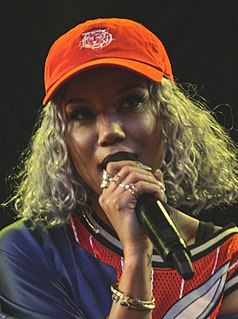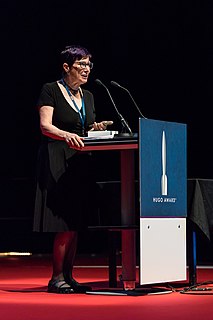A Quote by Tom Robinson
Without books we're a very uneducated society. Think of the places books have taken us, the people we've been introduced to (fiction or non-fiction) and how books have allowed us to broaden our vocabulary.
Quote Topics
Related Quotes
Few people ask from books what books can give us. Most commonly we come to books with blurred and divided minds, asking of fiction that it shall be true, of poetry that it shall be false, of biography that it shall be flattering, of history that it shall enforce our own prejudices. If we could banish all such preconceptions when we read, that would be an admirable beginning.
I often use detective elements in my books. I love detective novels. But I also think science fiction and detective stories are very close and friendly genres, which shows in the books by Isaac Asimov, John Brunner, and Glen Cook. However, whilst even a tiny drop of science fiction may harm a detective story, a little detective element benefits science fiction. Such a strange puzzle.
Books may not change our suffering, books may not protect us from evil, books may not tell us what is good or what is beautiful, and they will certainly not shield us from the common fate of the grave. But books grant us myriad possibilities: the possibility of change, the possibility of illumination.
The current publishing scene is extremely good for the big, popular books. They sell them brilliantly, market them and all that. It is not good for the little books. And really valuable books have been allowed to go out of print. In the old days, the publishers knew that these difficult books, the books that appeal only to a minority, were very productive in the long run. Because they're probably the books that will be read in the next generation.
It is chiefly through books that we enjoy intercourse with the superior minds, and these invaluable means of communication are in reach of all. In the best books, great men talk to us, give us their most precious thoughts, and pour their souls into ours. God be thanked for books. They are the voices of the distant and the dead, and make us heirs of the spiritual life of past ages. Books are true levellers. They give to all, who faithfully use them, the society, the spiritual presence of the best and greatest of our race.



































